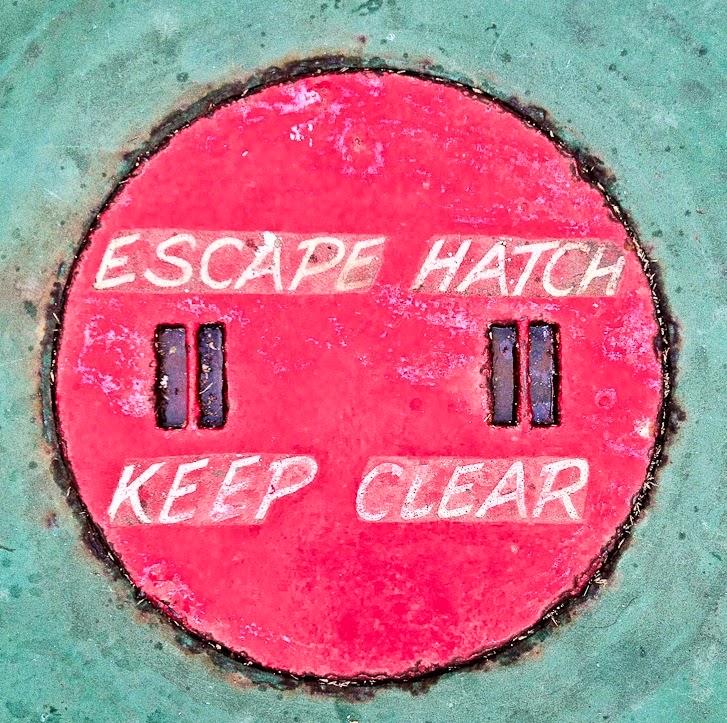The last President of the United States, George W. Bush, stated that God told him to invade Iraq (among some other requests). It's stuff like this that atheists point to when they want to see religion and religious thinking to go away. God told him? You mean that being for which there is no evidence of its existence? This is what you're basing policy on? Policy that costs the lives of thousands of people?
Many of my fellow nonbelievers find a little bit of hope in the fact that religion is on the decline in this country and around the world. It certainly would remove a lot of reasons for behaviors that are difficult to justify when you don't have a supreme being commanding you to do it. It certainly seems like we're entering a new age of enlightenment, but I'm not so sure that there's any reason to get too optimistic.
Let's take the example about Bush invading Iraq because Jesus told him to do so. Would it be any better if he said that he did it because that's what his astrologer told him to do? How about the ghost of George Washington said it would be a good idea? Maybe some aliens landed and told him that he should do so, and since they come from an advanced civilization, he figured that he'd follow their advice. Would any of these scenarios be any better? Of course not because they're all irrational and not based on any kind of evidence.
I sometimes will post all kinds of skeptic-related memes and thoughts on Facebook, and it's amazing to me how I'll get some people who'll "like" pretty much everything I post, but then they draw the line when I make fun of something that's equally irrational. For instance, I know people who will laugh at religious absurdities, but then they'll defend homeopathy. Also, I have one online friend who posts all kinds of amusing anti-religious memes, but then she posted something about her astrological sign. I didn't want to give her a hard time about it, but I expressed my confusion as to how she could be such a firm atheist and yet give any credence to astrology. I ended by explaining that the reason why I don't believe that me being a Sagittarius has any significance is the exact same reason why I don't believe in a god.
Obviously, a person can be an atheist and not be a skeptic. I think that's a little hard for people like myself, who started out as skeptics and found themselves becoming atheists as a result, to understand sometimes. I'm not quite sure what motivates people to become atheists otherwise. Perhaps it's that they simply don't like what religion has to offer, and they don't feel enough pressure from their friends and family to get involved with one. Maybe they had bad experiences. I don't know, but it seems like an interesting bit of compartmentalization to reject the idea of a God yet still believe in ghosts, for instance.
Let's also not forget the fact that there are a lot of atheists out there who might be skeptics when it comes to the supernatural, that doesn't necessarily mean that they're on the right side of science. Take, for instance, Bill Maher. I have such conflicted feelings about this guy. When he discusses religion and politics, I find myself in agreement with him, and I think that he has a great way of cutting right to the heart of the matter in a humorous way. Sometimes he goes a bit over the line, but I'm fine with that. When I have a real problem with Maher though is when he goes anti-science, in particular his statements about vaccines and GMOs. I ask you now, my fellow atheist, would you feel comfortable living in a world with a bunch of Methodists who vaccinate and don't work toward preventing potentially life-saving GMOs from going to poor people? Or would you rather be around a bunch of atheists with whooping cough?
So, yeah, it might be great to imagine a world with no religion, as John Lennon explained, but getting rid of religion doesn't mean that we'll suddenly be in a more rational world. If it's not coupled with skepticism, then we might be exchanging one kind of absurdity for another. This is why trying to spread atheism is ultimately pointless if you're also a skeptic. So, consider me unimpressed that there are more nonbelievers out there. I'll be more hopeful when I see other irrational beliefs go on the decline.
This is why we should concern ourselves with encouraging people to think skeptically. It's the sort of thing that ultimately works against religion, and all sorts of other tribalistic ills like nationalism, Atheism will come with a more skeptical outlook, and if there is good reason to believe in a god, then skepticism will bear that out as well.
Let's take the example about Bush invading Iraq because Jesus told him to do so. Would it be any better if he said that he did it because that's what his astrologer told him to do? How about the ghost of George Washington said it would be a good idea? Maybe some aliens landed and told him that he should do so, and since they come from an advanced civilization, he figured that he'd follow their advice. Would any of these scenarios be any better? Of course not because they're all irrational and not based on any kind of evidence.
I sometimes will post all kinds of skeptic-related memes and thoughts on Facebook, and it's amazing to me how I'll get some people who'll "like" pretty much everything I post, but then they draw the line when I make fun of something that's equally irrational. For instance, I know people who will laugh at religious absurdities, but then they'll defend homeopathy. Also, I have one online friend who posts all kinds of amusing anti-religious memes, but then she posted something about her astrological sign. I didn't want to give her a hard time about it, but I expressed my confusion as to how she could be such a firm atheist and yet give any credence to astrology. I ended by explaining that the reason why I don't believe that me being a Sagittarius has any significance is the exact same reason why I don't believe in a god.
Obviously, a person can be an atheist and not be a skeptic. I think that's a little hard for people like myself, who started out as skeptics and found themselves becoming atheists as a result, to understand sometimes. I'm not quite sure what motivates people to become atheists otherwise. Perhaps it's that they simply don't like what religion has to offer, and they don't feel enough pressure from their friends and family to get involved with one. Maybe they had bad experiences. I don't know, but it seems like an interesting bit of compartmentalization to reject the idea of a God yet still believe in ghosts, for instance.
Let's also not forget the fact that there are a lot of atheists out there who might be skeptics when it comes to the supernatural, that doesn't necessarily mean that they're on the right side of science. Take, for instance, Bill Maher. I have such conflicted feelings about this guy. When he discusses religion and politics, I find myself in agreement with him, and I think that he has a great way of cutting right to the heart of the matter in a humorous way. Sometimes he goes a bit over the line, but I'm fine with that. When I have a real problem with Maher though is when he goes anti-science, in particular his statements about vaccines and GMOs. I ask you now, my fellow atheist, would you feel comfortable living in a world with a bunch of Methodists who vaccinate and don't work toward preventing potentially life-saving GMOs from going to poor people? Or would you rather be around a bunch of atheists with whooping cough?
So, yeah, it might be great to imagine a world with no religion, as John Lennon explained, but getting rid of religion doesn't mean that we'll suddenly be in a more rational world. If it's not coupled with skepticism, then we might be exchanging one kind of absurdity for another. This is why trying to spread atheism is ultimately pointless if you're also a skeptic. So, consider me unimpressed that there are more nonbelievers out there. I'll be more hopeful when I see other irrational beliefs go on the decline.
This is why we should concern ourselves with encouraging people to think skeptically. It's the sort of thing that ultimately works against religion, and all sorts of other tribalistic ills like nationalism, Atheism will come with a more skeptical outlook, and if there is good reason to believe in a god, then skepticism will bear that out as well.



















